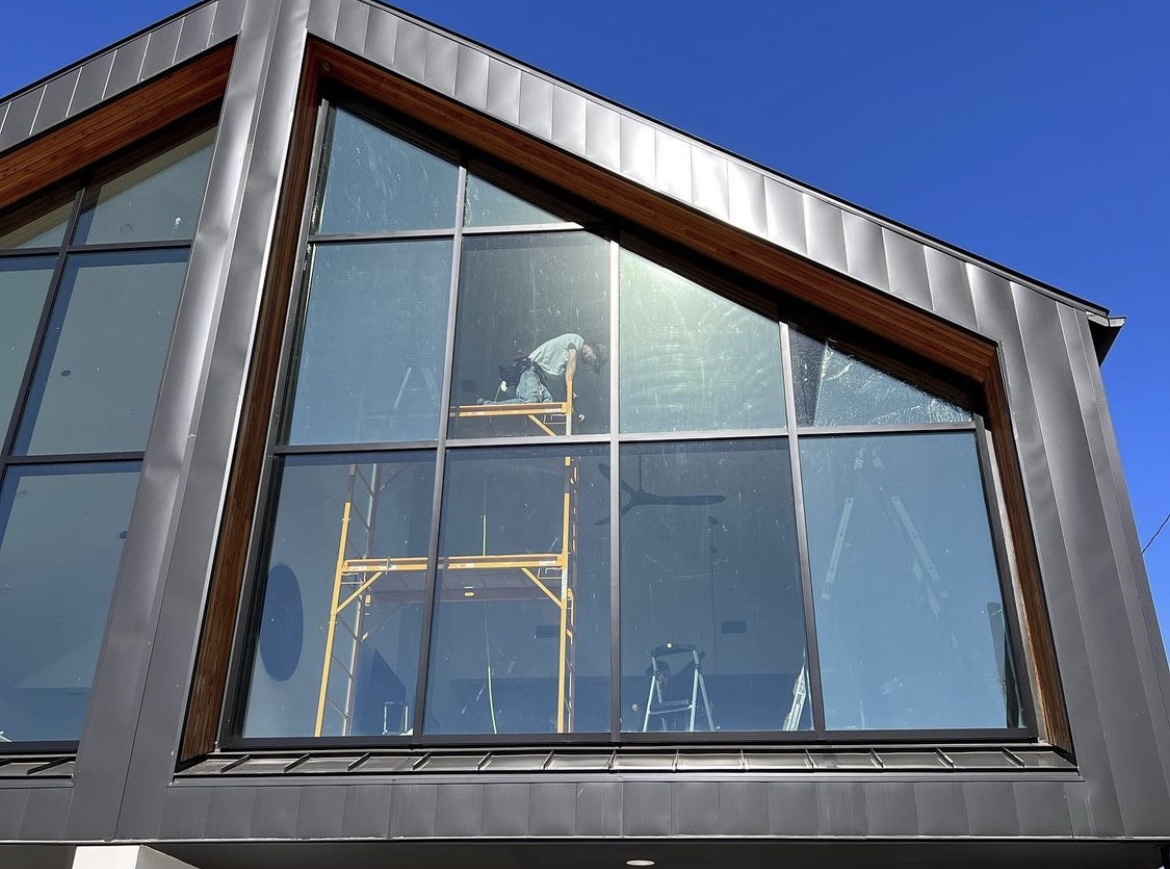Why Residential Window Tint is a Smart Financial Investment for Homeowners
Why Residential Window Tint is a Smart Financial Investment for Homeowners
Blog Article
Just How Residential Home Window Tinting Improves Your Home's Energy Efficiency
Residential window tinting presents a compelling remedy for house owners looking for to boost energy effectiveness within their living areas. By using specialized films to home windows, it effectively minimizes warmth transfer, consequently supporting interior temperature levels and decreasing the demand for too much heating or air conditioning.
Understanding Home Window Tinting
Comprehending home window tinting is essential for homeowners looking for to enhance both comfort and power performance in their living rooms. Residential Window Tint. Home window tinting involves the application of a thin film to the interior or exterior surface of glass home windows. This movie can considerably regulate the quantity of sunshine and warm that enters a home, therefore affecting indoor climate problems
There are various sorts of window tinting movies offered, each with unique buildings. Colored films soak up solar energy, while reflective movies deflect it away from the glass surface. Ceramic films provide a balance of visibility and warmth rejection, making them a prominent choice among property owners. The effectiveness of window tinting is often gauged by its Visible Light Transmission (VLT) portion, which shows exactly how much light can travel through the film.
Advantages of Power Efficiency
Home window tinting not just boosts aesthetic appeals but also plays a significant duty in improving energy efficiency within domestic areas. By lowering warm transfer through home windows, colored films produce a more steady indoor environment, which can result in substantial decreases in power consumption for home heating and air conditioning. This power performance translates right into reduced utility costs, supplying home owners with considerable long-lasting financial savings.

Furthermore, window tinting enhances the comfort of living areas. By reducing glare and blocking unsafe UV rays, colored home windows create an even more enjoyable environment, which can result in enhanced health for residents. The defense against UV rays additionally aids preserve furnishings and flooring from fading, contributing to the long life of house things.
How Tinting Works
Tinting movies run through a mix of advanced products and technologies created to regulate the quantity of solar power entering a home. Mainly made up of polyester, these films commonly integrate ceramic or metallic fragments that soak up and reflect warm. This double capability allows them to significantly reduce the infiltration of ultraviolet (UV) rays and infrared radiation while permitting visible light to go through.
The performance of home window tinting is measured by its solar heat gain coefficient (SHGC), which suggests just how much solar power is sent through the home window. Lower SHGC values are better as they represent better heat rejection. In addition, home window tints can feature a selection of shades, allowing homeowners to customize their visual preferences while enhancing energy effectiveness.
Moreover, these movies act as a barrier, preventing warm loss throughout chillier months by showing interior warmth back into the living room. This thermal insulation effect matches the air conditioning benefits gained during warmer months, adding to a balanced interior climate year-round. By taking care of solar power efficiently, property home window tinting not only boosts convenience but likewise plays a vital role in decreasing power usage and lowering utility bills.
Selecting the Right Tint

There are different kinds of window films offered, consisting of colored, metalized, and ceramic. Dyed films are cost-effective but might have restricted resilience. Metalized films offer better warm being rejected but can interfere with digital signals. Ceramic movies supply superb warm control without compromising exposure and are highly sturdy, making them a preferred choice.
Visible light transmission (VLT) is an additional important aspect, as it shows the quantity of all-natural light that can pass through the tinted glass. House owners must pick a color with a VLT that enhances their lights preferences while still giving ample glare reduction.
Furthermore, examining the solar warm gain coefficient (SHGC) can assist her explanation figure out how well a color can obstruct heat from sunshine. A lower SHGC indicates far better warm control, ultimately improving energy performance.
Setup and Upkeep Tips
Correct installation and upkeep are essential elements in making best use of the benefits of property home window tinting. Professionals likewise use specialized tools and strategies, which can improve the longevity and effectiveness of the tint.
Complying with installment, maintenance is necessary to lengthen the life of the window movie. It is recommended to wait at the very least one month prior to cleaning up the colored home windows to enable the adhesive to cure fully. When cleansing, utilize a soft fabric and a gentle, ammonia-free cleaner to avoid damaging the film. Prevent abrasive products that could scrape the surface.
Additionally, routine inspections are advantageous. Check for any type of peeling or bubbling, which might show incorrect installment or wear over time - Residential Window Tint. Dealing with these problems quickly can protect against more damages and preserve energy efficiency. By sticking to these installment and upkeep ideas, property owners can guarantee their home window tinting remains to provide significant energy savings and comfort for years to come.
Final Thought
To conclude, residential window tinting acts as a reliable option for boosting power efficiency within homes. By lowering heat transfer and obstructing damaging UV rays, home window movies contribute to decrease energy consumption and improved interior convenience. The choice of appropriate tinting materials, together with correct installment and upkeep, further takes full advantage of these benefits. Eventually, window tinting represents a lasting financial investment that not only lowers utility costs yet also advertises a comfy living environment throughout the year.
Window tinting includes the application of a slim movie to the interior or outside surface of glass find more windows. By lowering heat transfer through home windows, tinted movies create a much more stable indoor environment, which can lead to considerable reductions in energy consumption for home heating and air conditioning.The effectiveness of home window tinting is measured by its solar warmth gain coefficient (SHGC), which suggests exactly how much solar energy is sent via the window. By managing solar power properly, household window tinting not just boosts convenience yet also plays an essential role in reducing energy usage and lowering utility costs.
By reducing heat transfer and blocking unsafe UV rays, home window films contribute to reduce energy intake and improved interior comfort.
Report this page